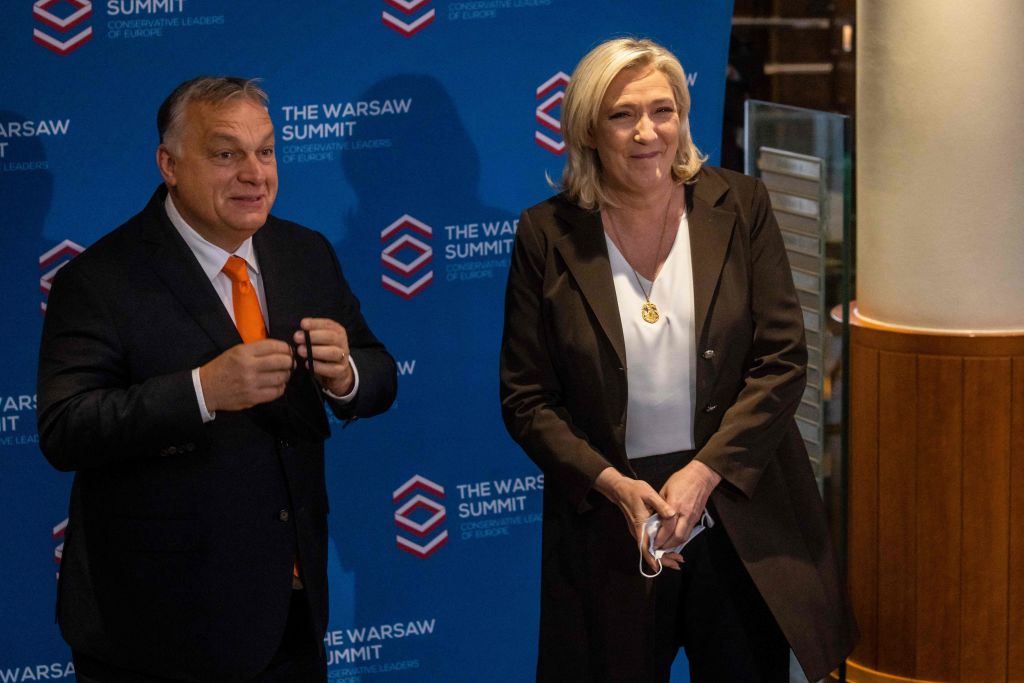Le Pen, Orban, and other European populist leaders meet in Warsaw to discuss EU concerns


A free daily email with the biggest news stories of the day – and the best features from TheWeek.com
You are now subscribed
Your newsletter sign-up was successful
Europe's most prominent right-wing populist leaders met in Warsaw Saturday to discuss concerns about the European Union, The Associated Press reported.
Jaroslaw Kaczynski, Poland's deputy prime minister and leader of the governing Law and Justice party, hosted the summit. Other attendees included Hungarian Prime Minister Viktor Orban, French presidential candidate Marine Le Pen, and Santiago Abascal, the leader of Spain's Vox party.
Protestors held signs labeling them as fascists and Russian stooges.
The Week
Escape your echo chamber. Get the facts behind the news, plus analysis from multiple perspectives.

Sign up for The Week's Free Newsletters
From our morning news briefing to a weekly Good News Newsletter, get the best of The Week delivered directly to your inbox.
From our morning news briefing to a weekly Good News Newsletter, get the best of The Week delivered directly to your inbox.
Le Pen tweeted that the leaders are united by their desire for "a Europe of nations to give back to the peoples of Europe their freedom and their sovereignty."
Polling suggests Le Pen will make it to the run-off in France's 2022 presidential election for a rematch against President Emmanuel Macron, who defeated Le Pen by an almost two-to-one margin in 2017. In addition to an uphill battle against the centrist Macron, Le Pen also faces a challenge the right in the form of journalist and political newcomer Éric Zemmour, who is polling in third place.
At around 4:30 local time (Poland and Spain occupy the same time zone), Abascal tweeted that he was back in his home country. His post also described the summit as "successful," misidentified Kaczynski as the prime minister of Poland, and announced that the same slate of politicians had agreed to attend another summit to be held next month in Spain.
Vox currently holds 15 percent of the seats in the Spanish Congress of Deputies, behind only the center-left Socialists (28 percent) and the center-right People's Party (21 percent).
A free daily email with the biggest news stories of the day – and the best features from TheWeek.com
According to recent polling from Závecz Research, Orban's Fidesz party is neck-and-neck with an opposition coalition that includes socialists, liberals, and the far-right, anti-Semitic Jobbik party. The election will be held in April or May of 2022.
In Poland, Law and Justice will not have to face voters again until 2023, but its policies — especially hardline opposition to abortion rights — have sparked protests. The European Commission has accused the governments of Poland and Hungary of implementing anti-democratic policies and is withholding funds from the two Central European nations.
Grayson Quay was the weekend editor at TheWeek.com. His writing has also been published in National Review, the Pittsburgh Post-Gazette, Modern Age, The American Conservative, The Spectator World, and other outlets. Grayson earned his M.A. from Georgetown University in 2019.
